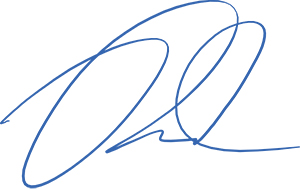


The Boulder Problem
Leadership and rock climbing have striking similarities. I recently watched Free Solo, the 2019 Oscar-winning documentary about Alex Honnold’s ascent of Yosemite’s El Capitan. The climb is 3,200 feet straight-up, and free soloing is ascending without a rope. The feat had never been attempted, and for good reason: One mistake can mean paying the ultimate price.
As I watched Alex climb, I could not help but think of his efforts as a metaphor for today’s leadership experience. This may seem like an odd analogy. After all, most of us don’t face life-threatening consequences every time we change position. But two factors make the comparison relevant. First, we all fear different things. A climber may stare down a mountain but be terrified of financial risk, while an entrepreneur may be petrified of heights and yet accepting of walking a financial tightrope. Second, we all experience fear differently. For some the thought of financial loss or public failure might be as foreboding as clinging to the side of a mountain.
Free Solo pays particular attention to an area of the climb known as the Boulder Problem, an exceptionally difficult section of an unimaginably difficult climb. It is at this juncture that I felt the most kinship with Alex’s struggle. The contact points of the climber’s hands and feet seem so precarious, tucked into the smallest of contours of the mountain, and yet they are enough. They are also temporary, for stopping to rest and simply holding on is not an option. Fatigue and time collect a toll of their own, and at this point, retreat is a diminished possibility. It is in this most vulnerable of states that Alex lifts his foot and kicks forward to the next point on his journey. Successful for now, he continues to climb.
In leadership, there are times when the uncertainty resulting from relentless change feels a lot like the Boulder Problem. The once familiar and reliable touch-points on the path forward appear eroded and poorly defined, the climb steep and perilous. And while most of us are not faced with a life-threatening consequence if we make a mistake, the potential financial and reputational impact can appear just as terrifying.
Leaders share something else in common with Alex that adds to situational complexity: we do not climb alone. Free Solo spends considerable time with Alex’s team, those who will witness the result of the climb. It becomes abundantly clear that a mistake will have a substantial and perhaps life-changing impact on those he led to the mountain. To varying degrees, the situation is the same for all who choose to lead. The decisions we make and their resulting impact, for good or bad, echo through our teams, our organizations and our communities.
As Alex begins his final ascent, a member of the crew is overheard saying, “Let’s hope it’s a low-gravity day.” It is a subtle acknowledgment that gravity is an unforgiving constant, and that it will be courage, preparation and perhaps a little grace that determine the mood at the end of the day.
Leadership’s unforgiving constant is change. How do we lead into a future that humankind has never experienced? With courage, imagination and the personal integrity that defines sustainable leadership. We have chosen to climb. There is no turning back the hands of time, and the price of stasis is fatigue and obsolescence. There is but one thing left to do: look ahead, kick forward and climb.

